Rail cards and cocaine - how police are intercepting county lines on our trains
County lines is the term given to the transportation of drugs between towns and cities in the UK, with the word "lines" referring to the burner phone lines advertising the sale of drugs to buyers.
Criminals high up in the chain are known to groom and exploit young and vulnerable people into transporting the drugs for them, either by train or hire cars, with the promise of earning cash in return.
Advertisement
Hide AdAdvertisement
Hide AdThere are an estimated 2,700 active lines in Britain, with British Transport Police (BTP) further estimating that 31 of those are importing into Yorkshire and the Humber.
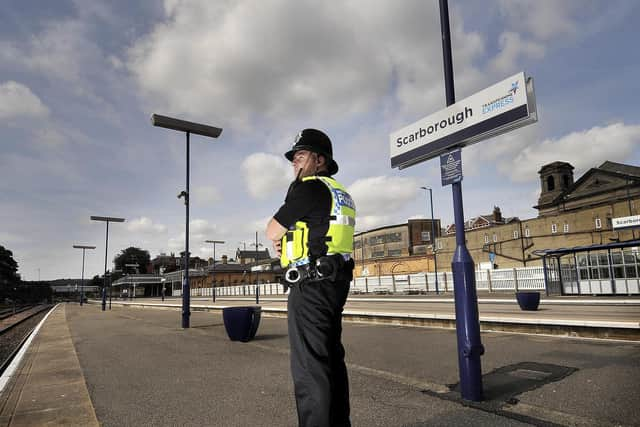

Towns in North Yorkshire such as Scarborough and Harrogate have been highlighted as active areas in the county lines network.
Last year, the Home Office announced funding for BTP from a £20m sum for tackling county lines. The money has been used to allocate dedicated officers to intercept people aiding the transportation of drugs on the country's rail network, and since Autumn there have been 42 officers and staff patrolling trains and stations.
The operation, according to the force's head of covert policing and county lines, has resulted in 340 people being arrested since the beginning of this year alone, with 170 drug seizures and 49 weapons confiscated - including a firearm and ammunition.
Advertisement
Hide AdAdvertisement
Hide AdDetective Superintendent Gareth Williams said nearly a third of arrests involved people aged 16 to 18, with the majority of those boys.
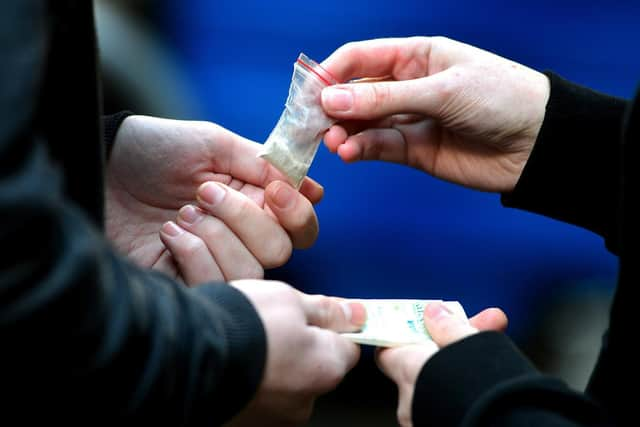

"All our county lines efforts are from a safeguarding point of view," he said.
"29 per cent of people arrested by BTP over county lines offences have been aged between 16 to 18. The youngest person we've arrested was 14 - he was from London but he was arrested in Brighton after being found with crack cocaine."
The taskforce has previously assisted North Yorkshire Police with numerous operations in Scarborough in the last six months, leading to several arrests for possession with intent to supply both Class A and Class B drugs. Officers recently arrested six individuals at Scarborough station, four of which were for these offences.
Advertisement
Hide AdAdvertisement
Hide AdBTP also works regularly with Humberside Police at Hull Paragon Interchange, where an arrest was recently made an arrest following the discovery of 140 wraps of crack cocaine and a Rambo knife, as well as with South Yorkshire Police on several joint-working deployments at Doncaster Station.
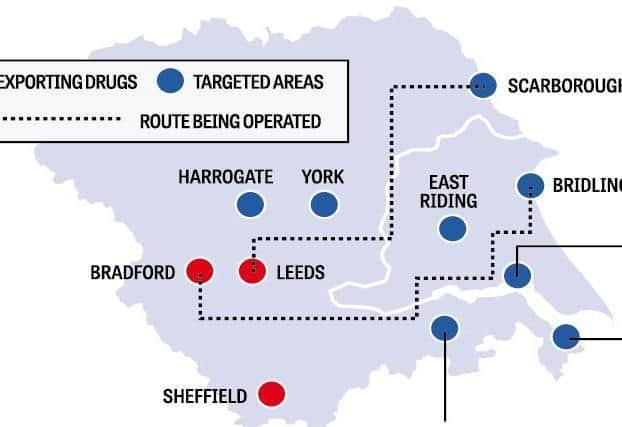

Despite this, Det Supt Williams says his ambition through this new operation is "to make the rail network totally unattractive and untenable for organised gangs", with the alternative of hire cars being even less feasible for young teenage males.
Drugs carriers on trains are given so-called "broadcast phones", which is the county line's phone carrying the contacts for clients. Once arrived at a location, that phone will send out hundreds of texts to advertise the carrier is in that location.
Officers are now trained to spot the signs a person travelling may be involved in crime, with many intercepting teenagers in large city stations paying for train tickets to locations dozens or hundreds of miles away in cash.
Advertisement
Hide AdAdvertisement
Hide AdDet Williams added: "I do feel as though train staff's main concern is always, 'has that 15-year-old got a valid ticket?' instead of, 'why is a kid from Liverpool buying a ticket to Devon is cash?'
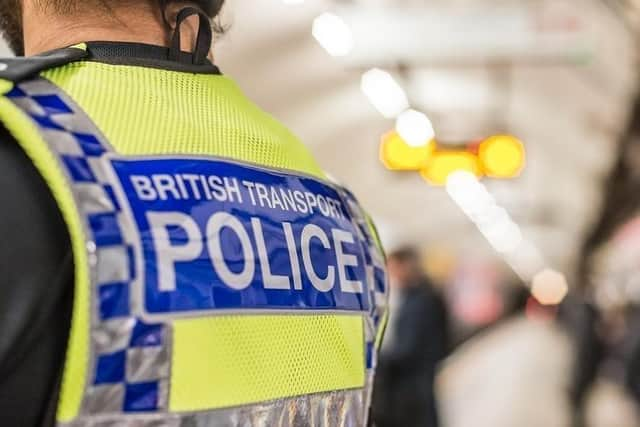

"These operations help us build our knowledge about the wider issue. During lockdown, for example, officers in Cambridge saw a young lad aged around 16 or 17 one day coming onto the station and found he was carrying drugs. One quick-witted officer saw him getting out of a taxi so ran back and caught up with the taxi driver asking where he had picked this lad up.
"The driver took him to a property which was an Airbnb which was closed due to Covid, but it was being cuckoo'ed (taken over by criminals for the purpose of preparing and distributing drugs). There were six kids in there who had been reported missing from London.
"We also recently found two missing kids in Hull as part of our operations."
Advertisement
Hide AdAdvertisement
Hide AdDespite current lockdown restrictions, Det Williams said the force has not seen much change in the number of arrests. Some 64 arrests have been made over county lines offences since April 1, which he said "would reflect the usual figure".
However, criminals are wising up to police's tougher stance, with officers seeing creative new ways of people trying to hide drugs and cash.
One man was arrested in Liverpool Lime Street Station earlier this week after officers found drugs in a pram underneath a four-day-old baby, while officers have also encountered drugs being hidden inside people's bodies stuffed in plastic capsules that come with children's Kinder Eggs.
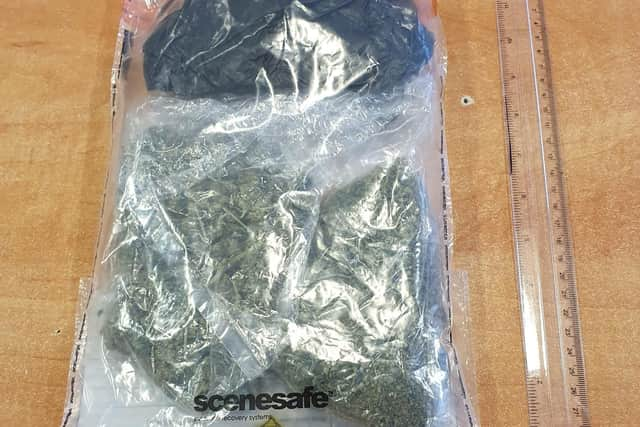

"One lad aged around 16 we arrested in Basingstoke was spotted ten days later in lockdown dressed as a construction worker, wearing a high-vis jacket," Det Williams added.
Advertisement
Hide AdAdvertisement
Hide Ad"The bottom line is, this is all exploitation of younger people and our primary concern is keeping them safe. Finding a child hundreds of miles from home on a day when they should be in school gives us that opportunity to protect and safeguard."